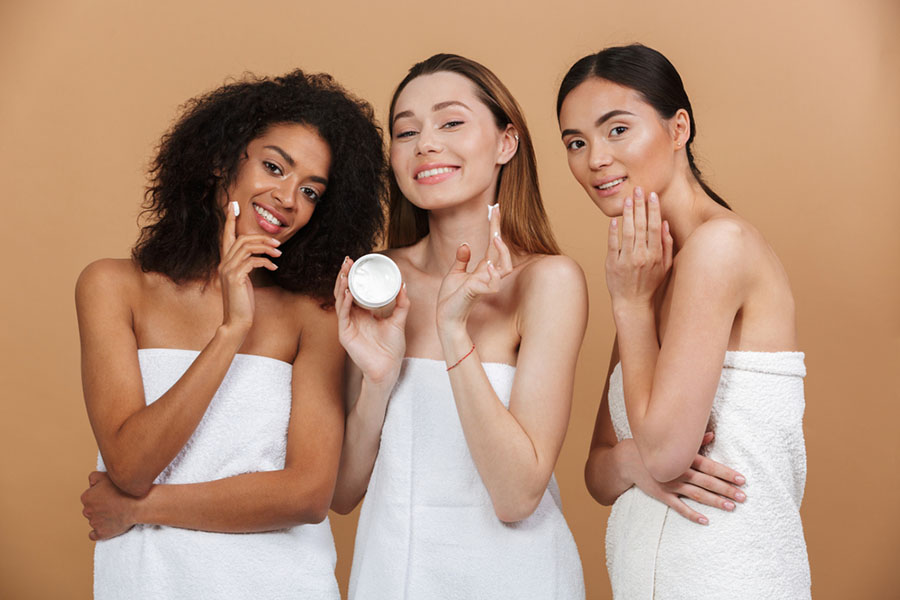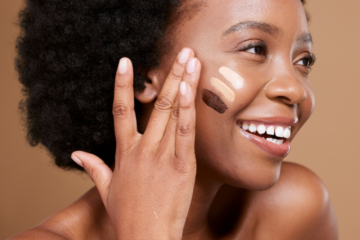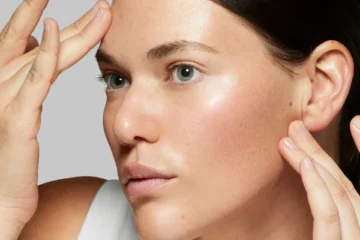Skincare is a vital part of many women’s daily routines. Whether you’re new to skincare or a seasoned beauty enthusiast, you’ve likely come across numerous skincare tips and tricks. Unfortunately, not all advice is created equal. The skincare industry is rife with myths that can mislead you into making choices that don’t benefit your skin. In this blog post, we’ll debunk some of the most common skincare myths and provide you with the facts you need to achieve healthy, glowing skin.
Myth 1: “The More Expensive, the Better”
It’s easy to assume that higher price points mean better quality when it comes to skincare. However, the effectiveness of a product isn’t always tied to its cost. Many affordable skincare products contain the same active ingredients as their high-end counterparts.
Expensive packaging and branding often contribute to a product’s high price, not necessarily its efficacy. Drugstore brands frequently offer products with scientifically proven ingredients at a fraction of the price. It’s essential to focus on the ingredients and their concentrations rather than the brand name or price tag.
Additionally, what works for one person may not work for another, regardless of cost. Skin type, concerns, and sensitivities vary from person to person. Effective skincare is more about finding products that cater to your specific needs rather than assuming that a higher price guarantees better results.
Myth 2: “Natural Ingredients are Always Safe”
The term “natural” has become a buzzword in the beauty industry, leading many to believe that natural ingredients are inherently safer than synthetic ones. However, this isn’t always the case. While natural ingredients can be beneficial, they can also cause allergic reactions or skin irritation.
For instance, essential oils like lavender or citrus can cause photosensitivity or contact dermatitis in some people. On the other hand, many synthetic ingredients undergo rigorous testing for safety and efficacy. The key is to understand your skin’s tolerance and do a patch test before fully incorporating any new product, natural or synthetic, into your routine.
Furthermore, the term “chemical-free” is misleading. Everything, including water, is a chemical. The important distinction is between harmful and beneficial chemicals. Learning to read ingredient labels and understanding what they do can help you make better choices for your skin, irrespective of whether ingredients are natural or synthetic.
Myth 3: “You Only Need Sunscreen on Sunny Days”
One of the most damaging skincare myths is that sunscreen is only necessary on bright, sunny days. The truth is, harmful UV rays can penetrate through clouds and windows, causing skin damage year-round. UVA rays, in particular, can age your skin prematurely and contribute to skin cancer, even on overcast days.
Daily sunscreen application is crucial, regardless of the weather or season. Look for broad-spectrum sunscreens that protect against both UVA and UVB rays with an SPF of at least 30. Integrating sunscreen into your daily routine can prevent cumulative sun damage, preserving your skin’s health and youthful appearance.
Additionally, don’t forget often-overlooked areas like your neck, ears, and hands. Consistent use of sunscreen can significantly reduce the risk of skin cancer and prevent premature aging caused by sun exposure. Reapply every two hours, especially if you’re outdoors or sweating.
Myth 4: “You Can Shrink Your Pores”
Pore size is largely determined by genetics, and unfortunately, you cannot physically shrink them. However, you can minimize their appearance with the right skincare regimen. Pores often appear larger when clogged with oil, dirt, or dead skin cells.
Using products that contain salicylic acid or retinoids can help keep pores clean and reduce their visibility. Regular exfoliation can also prevent build-up, making pores appear smaller. Additionally, applying a primer can temporarily create a smoother surface, minimizing the look of pores under makeup.
It’s important to maintain realistic expectations. While you can’t change the actual size of your pores, adopting a consistent skincare routine can help keep them clean and less noticeable. Avoid harsh treatments that promise to shrink pores, as these can irritate the skin and exacerbate the problem.
Myth 5: “Skincare Products Can Erase Wrinkles”
While some skincare products can improve the appearance of fine lines and wrinkles, no product can completely erase them. Ingredients like retinoids, peptides, and hyaluronic acid can boost collagen production and improve skin texture, but they won’t turn back the clock entirely.
Lifestyle factors such as diet, hydration, and avoiding smoking also play a significant role in skin health. Protecting your skin from sun damage with daily sunscreen use can prevent further wrinkles from forming. Incorporating antioxidant-rich foods and maintaining a consistent skincare routine can enhance the overall health and appearance of your skin.
It’s essential to manage your expectations with anti-aging products. Consistent use and a holistic approach to skincare can yield visible improvements, but understanding that aging is a natural process will help you appreciate the gradual benefits of your efforts.
Myth 6: “You Should Change Your Products Frequently”
A common belief in the skincare world is that switching products often prevents skin from adapting and becoming less effective. However, consistency is key to seeing results. When you find products that work well for your skin type and concerns, sticking with them can lead to improved skin health over time.
Frequent changes can actually disrupt your skin’s barrier and lead to irritation or breakouts. It’s advisable to give new products at least four to six weeks to assess their effectiveness fully, as this is typically the time it takes for the skin to adjust. Additionally, maintaining a core routine of reliable products can help create stability for your skin, allowing it to thrive. However, if you experience adverse reactions, it may necessitate reevaluation of your current products.
Myth 7: “All Skincare Ingredients are Interchangeable”
Another pervasive myth is that ingredients serve the same purpose and can be substituted without consequence. In reality, the function and effectiveness of ingredients vary significantly. For instance, while both moisturisers and serums hydrate the skin, they do so in different ways and often target distinct skin concerns.
Understanding the specific roles of various ingredients—such as antioxidants, exfoliants, humectants, and emollients—can help you tailor your skincare routine to address your unique needs. Furthermore, pairing ingredients effectively can amplify their benefits; for example, layering a vitamin C serum under sunscreen can enhance protection against environmental stressors. Ultimately, learning how different components interact with one another enables more effective and personalized skincare practices.
Myth 8: “Natural Ingredients are Always Better for Your Skin”
The idea that natural ingredients are superior to synthetic ones is a common misconception in the skincare industry. While many natural ingredients can be beneficial, not all are safe or suitable for every skin type. For example, essential oils, which are often touted for their natural properties, can irritate sensitive skin or trigger allergic reactions in some individuals. Conversely, synthetic ingredients are carefully formulated and tested to ensure safety and efficacy. It’s essential to evaluate each ingredient based on scientific research and its specific benefits rather than its origin. This approach allows for more informed choices that prioritise both safety and effectiveness, leading to healthier skin overall.
Myth 9: “Expensive Products are More Effective”
A prevalent belief is that higher-priced skincare products are inherently more effective than their budget-friendly counterparts. However, the price tag of a product often reflects branding, packaging, and marketing rather than actual quality or results. Many affordable options contain active ingredients that can deliver excellent results without breaking the bank. It is crucial to focus on the ingredient list and formulations instead of simply the brand name or price. Conducting research and reading reviews can help you identify effective products across various price points, allowing you to build a skincare routine that meets your needs without overspending.
Myth 10: “Drinking Water Stops Dry Skin”
While staying hydrated is essential for overall health, simply drinking water won’t resolve dry skin issues. Dry skin can result from various factors, including environmental conditions, skincare habits, and genetics. Topical hydration through moisturizers is vital for trapping moisture in the skin and providing a protective barrier. Look for products that contain hydrating ingredients, such as glycerin, hyaluronic acid, or ceramides, to effectively combat dryness. Furthermore, adopting a holistic approach that includes proper skin care, a balanced diet, and environmental protection can significantly improve skin hydration and overall health.
Conclusion
Navigating the world of skincare can be daunting, especially with so many myths floating around. By debunking these common misconceptions, we hope to empower you with the knowledge to make informed decisions for your skincare routine. Remember, effective skincare is about understanding what works best for your unique skin type and needs.
Share this newfound knowledge with your friends and family, and help dispel these myths. We’d love to hear your thoughts and experiences, so feel free to leave your feedback. Stay informed and keep your skin glowing with the right skincare choices.





